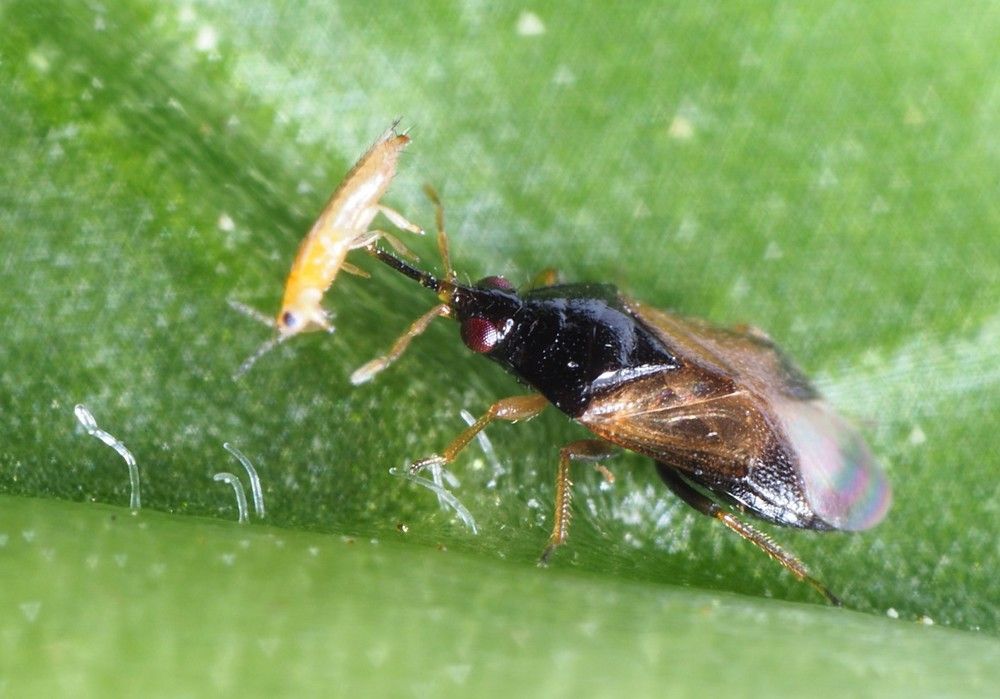
PREDATORY BUGS
CHINCHES DEPREDADORAS


How do they act?
Predatory bugs are beneficial insects that feed on other insects, especially agricultural pests. Unlike phytophagous bugs that damage plants, these are allies of the farmer because they actively hunt prey such as eggs, larvae or small insects. They use their stiletto-shaped mouthparts to suck the contents of their victims, thus helping to maintain the natural balance without the need to use chemical pesticides.
How to attract them?
To attract and keep predatory bugs in the crop:
- Keep small, aromatic flowers such as fennel, calendula or basil.
- Keep some beneficial weeds that serve as shelter.
- Avoid the use of broad spectrum insecticides.
- Apply phytosanitary products only when necessary and in a localized manner.
- Do not completely eliminate biodiversity from the environment.
What pests do they control?
These bed bugs act against a wide variety of pests. Specifically, species such as Orius are very effective against thrips, mites, aphids and caterpillar eggs, while Nesidiocoris tenuis or Macrolophus pygmaeus are natural predators of whiteflies, leafminers, thrips and red spiders. They are highly valued in crops such as tomatoes, peppers, eggplants and ornamental plants, where they help reduce pest populations without negatively affecting the plant (although some species can bite plant tissues if prey is not available).
PRODUITS RECOMMANDÉS
Les produits présentés sont des recommandations et ne sont pas nos propres produits. En tant qu'associés Amazon, nous gagnons des revenus grâce aux achats de produits recommandés.



















